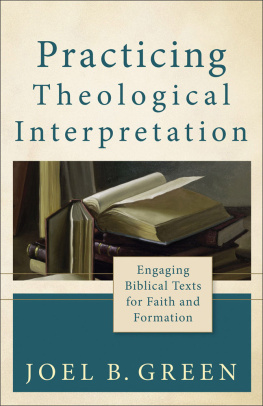Adam A. K. M. - Reading Scripture with the Church: Toward a Hermeneutic for Theological Interpretation
Here you can read online Adam A. K. M. - Reading Scripture with the Church: Toward a Hermeneutic for Theological Interpretation full text of the book (entire story) in english for free. Download pdf and epub, get meaning, cover and reviews about this ebook. year: 2006, publisher: Baker Publishing Group, genre: Religion. Description of the work, (preface) as well as reviews are available. Best literature library LitArk.com created for fans of good reading and offers a wide selection of genres:
Romance novel
Science fiction
Adventure
Detective
Science
History
Home and family
Prose
Art
Politics
Computer
Non-fiction
Religion
Business
Children
Humor
Choose a favorite category and find really read worthwhile books. Enjoy immersion in the world of imagination, feel the emotions of the characters or learn something new for yourself, make an fascinating discovery.

- Book:Reading Scripture with the Church: Toward a Hermeneutic for Theological Interpretation
- Author:
- Publisher:Baker Publishing Group
- Genre:
- Year:2006
- Rating:3 / 5
- Favourites:Add to favourites
- Your mark:
- 60
- 1
- 2
- 3
- 4
- 5
Reading Scripture with the Church: Toward a Hermeneutic for Theological Interpretation: summary, description and annotation
We offer to read an annotation, description, summary or preface (depends on what the author of the book "Reading Scripture with the Church: Toward a Hermeneutic for Theological Interpretation" wrote himself). If you haven't found the necessary information about the book — write in the comments, we will try to find it.
Adam A. K. M.: author's other books
Who wrote Reading Scripture with the Church: Toward a Hermeneutic for Theological Interpretation? Find out the surname, the name of the author of the book and a list of all author's works by series.
Reading Scripture with the Church: Toward a Hermeneutic for Theological Interpretation — read online for free the complete book (whole text) full work
Below is the text of the book, divided by pages. System saving the place of the last page read, allows you to conveniently read the book "Reading Scripture with the Church: Toward a Hermeneutic for Theological Interpretation" online for free, without having to search again every time where you left off. Put a bookmark, and you can go to the page where you finished reading at any time.
Font size:
Interval:
Bookmark:
Reading Scripture
with the
Church
Reading Scripture
with the Church
Toward a Hermeneutic
for Theological Interpretation
A. K. M. Adam
Stephen E. Fowl
Kevin J. Vanhoozer
Francis Watson

2006 by A. K. M. Adam, Stephen E. Fowl, Kevin J. Vanhoozer, and Francis Watson
Published by Baker Academic
a division of Baker Publishing Group
P.O. Box 6287, Grand Rapids, MI 49516-6287
www.bakeracademic.com
Printed in the United States of America
All rights reserved. No part of this publication may be reproduced, stored in a retrieval system, or transmitted in any form or by any meansfor example, electronic, photocopy, recordingwithout the prior written permission of the publisher. The only exception is brief quotations in printed reviews.
Library of Congress Cataloging-in-Publication Data
Reading Scripture with the church : toward a hermeneutic for theological interpretation / A. K. M. Adam... [et al.].
p. cm.
Includes bibliographical references.
ISBN 10: 0-8010-3173-7 (pbk.)
ISBN 978-0-8010-3173-1 (pbk.)
1. BibleHermeneutics. 2. BibleCriticism, interpretation, etc.
I. Adam, A. K. M. (Andrew Keith Malcolm), 1957
BS476.R425 2006
220.601dc22
2006013929
Contents
A. K. M. Adam
Stephen E. Fowl
Kevin J. Vanhoozer
Francis Watson
Francis Watson
Stephen E. Fowl
Kevin J. Vanhoozer
A. K. M. Adam
A. K. M. Adam (Ph.D., Duke University) is professor of New Testament at Seabury-Western Theological Seminary. His authored or edited books include What Is Postmodern Biblical Criticism? , Making Sense of New Testament Theology, and A Handbook ofPostmodern Biblical Interpretation.
Stephen E. Fowl (Ph.D., University of Sheffield) is professor of theology at Loyola College in Maryland. His authored or edited books include Engaging Scripture: A Model for Theological Interpretation and The Theological Interpretation of Scripture: Classicand Contemporary Readings.
Kevin J. Vanhoozer (Ph.D., University of Cambridge) is research professor of systematic theology at Trinity Evangelical Divinity School. His authored or edited books include Dictionaryof Theological Interpretation of the Bible, Is There a Meaning inThis Text?, and The Bible, the Reader, and the Morality of LiteraryKnowledge.
Francis Watson (D.Phil., University of Oxford) is professor of New Testament exegesis at the University of Aberdeen. His authored or edited books include Paul and the Hermeneutics of Faith, Text and Truth: Redefining Biblical Theology, and Text, Church,and World: Biblical Interpretation in Theological Perspective.
The history of biblical interpretation is customarily presented as a series of formal disquisitions, with professors and clergy declaiming long-winded lectures from podium or pulpit (often in Latin). This institutionalized history obviously emphasizes the eminent, public monuments of an intellectual and spiritual history. It misses, however, some of the vitally productive moments when thoughtful readers of Scripture work out their interpretations in animated dialogue with one anotheraround a kitchen table, over a beer at a public house, in the book display at a professional conference, in a quiet study, in a noisy living room filled with active children.
This collections four contributors have been arguing with one another about the theological interpretation of Scripture for many years now. We have made our cases on formal academic panels and debated in the pages of technical publications, yes, but we have spent even more time hashing out our dissents and agreements in less formal, more convivial settings. These essays emerge out of an ongoing conversation of more than a decades durationand those discussions, in turn, arise out of a larger struggle. We share an ardent concern that the church soundly attend both to the theological weight of diverse ancient texts and to the critical investigation of those texts grammar, milieu, and historical verisimilitude. When we trade ripostes over coffee and bagels, we argue as inheritors of a ponderous, joyous, and probably endless problem.
Of course, we represent only a small portion of the churchs long-standing deliberation about Scripture and theology. Millions of souls have studied the Bible with insights that our conversation does not engage, with resources we neglect. A more expansive collection of essays would embrace contributions from women, from other cultures, from other streams of the Christian tradition, from sibling faiths, and perhaps from utterly divergent religions. Such a compendium would be stronger for the breadth of its scope. At the same time, however, a more varied roster of contributors would miss the strength that common interest and mutual trust lend to this more modest volume. These essays grow organically from the experience of hypothesis, response, review, and revision that long-standing collegial discussion makes possible.
The conversation recorded here takes place at a time during which the theological interpretation of Scripture is rising anew from a fallow interval. The aftermath of the biblical theology movement (to the extent that such a thing existed in more than a heuristic sense) yielded many fresh, powerful insights into the social settings of the biblical writers, into the ways that the individual writings hang together (or strain apart), and into the ways that the distinct scriptural texts converge and diverge. Scholars redirected some of the energy that might have gone toward exploring biblical theology toward more general hermeneutics and encountered there the uncanny torsions of postmodern thought. Readers who had long been excluded from technical study of the Bible challenged the prevalent cultures representatives to lay aside the rhetorical devices of domination. The biblical academy has begun to reckon with the difference of Scriptures significance in all the innumerable languages and dialects, with respect to racial privilege, in conjunction with the varying experiences of women and men in multifarious social environments. After so much learning and reassessment, a community of scholars has again taken up the question of the Bibles relation to theology, worship, ethics, and all the practices of everyday life.
It would be a mistake to suggest that this moment marks the inception of a new biblical theology movement. Such claims are cheap, usually mere self-congratulation and public-relations puffery. No manifesto unites the participants in the resurgent discourse of the theological interpretation of Scripture, nor do any distinctive common premises set apart a particular constituency of all so-called new biblical theologians. Still, one can point to numerous signs of an impetus to raise again, more carefully, the question of the theological interpretation of Scripture among new interlocutors. The participants to this particular colloquiumwho have contributed numerous weighty volumes to the topicare only a few of the thoughtful theologians and scholars of Scripture whose vigor and love for insight are refreshing the discipline of biblical theology. The Institute for Scriptural Reasoning, the North Park Symposium on the Theological Interpretation of Scripture (and its published proceedings in Exauditu), the Scripture and Hermeneutics Seminar (with its attendant published proceedings), and the proliferation of professional groups dedicated to study of the sound, critical interpretation of the theological significance of Scriptureall testify to the vigorous efflorescence of inquiry into a topic that numerous scholars pronounced dead only a few years ago.
Next pageFont size:
Interval:
Bookmark:
Similar books «Reading Scripture with the Church: Toward a Hermeneutic for Theological Interpretation»
Look at similar books to Reading Scripture with the Church: Toward a Hermeneutic for Theological Interpretation. We have selected literature similar in name and meaning in the hope of providing readers with more options to find new, interesting, not yet read works.
Discussion, reviews of the book Reading Scripture with the Church: Toward a Hermeneutic for Theological Interpretation and just readers' own opinions. Leave your comments, write what you think about the work, its meaning or the main characters. Specify what exactly you liked and what you didn't like, and why you think so.

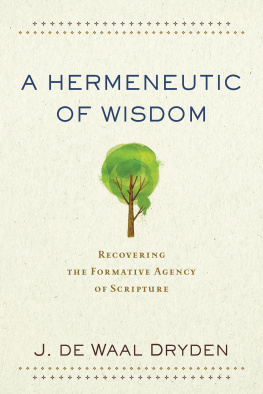
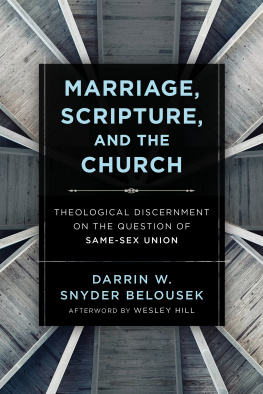
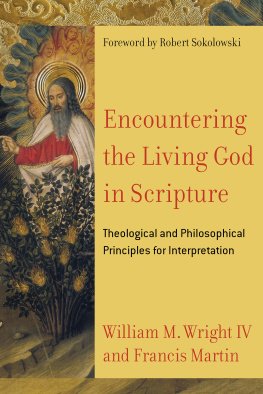
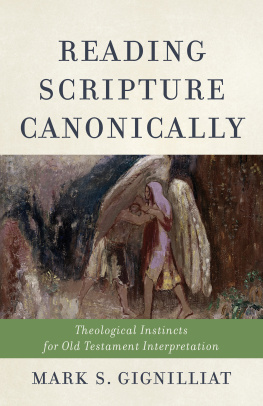
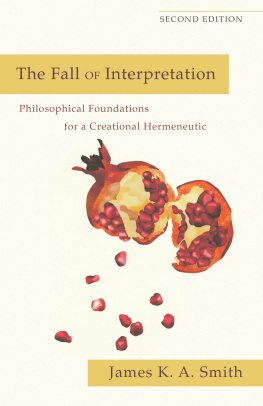
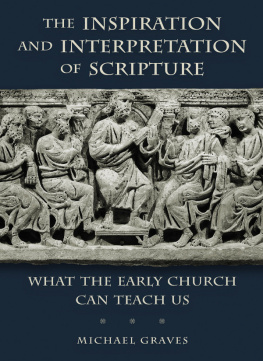
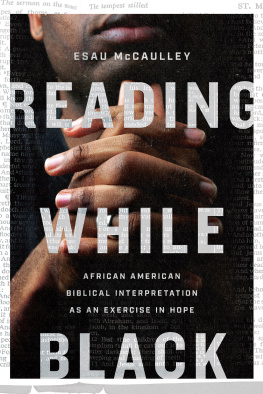
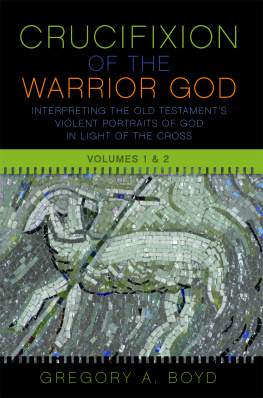
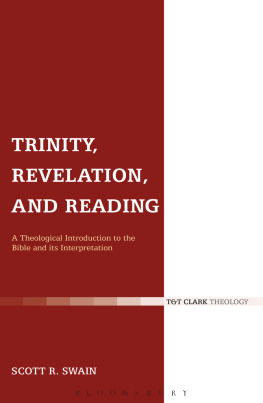
![Scott Hahn [Inconnu(e)] - Scripture Matters: Essays on Reading the Bible From the Heart of the Church](/uploads/posts/book/134760/thumbs/scott-hahn-inconnu-e-scripture-matters-essays.jpg)
